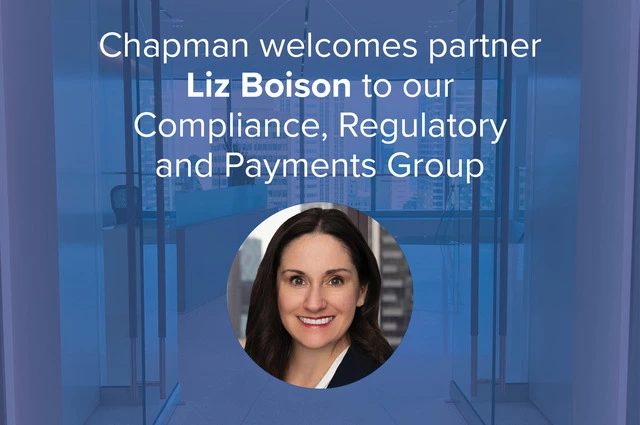- Topic: Secured Creditors
68 matches.
- January 2023 (Originally Published August 23, 2022)Pratt's Journal of Bankruptcy Law
Pratt's Journal of Bankruptcy Law republished a Chapman Client Alert.
In an opinion issued on June 15, 2022, the Delaware Supreme Court reversed a decision by the Chancery Court and found that a transfer by an insolvent corporation of substantially all of its assets to a newly created entity (“SeeCubic”) controlled by its secured creditors, in full satisfaction of its debts, violated the corporation’s charter.
The Delaware Supreme Court is currently considering an appeal of a series of decisions by the Court of Chancery which held that a vote of a majority of shareholders is not required for an insolvent company to transfer its assets to its secured creditors.
As companies default under their credit agreements, lenders have to decide what course of action is appropriate to effectuate their goals. Should the lender give the borrower breathing room by entering into a forbearance agreement in exchange for certain milestones, or is more aggressive enforcement action required?
This is the third and final Client Alert of a three-part series relating to executing a Strict Foreclosure. As discussed in our previous Client Alerts, it is imperative to focus on who is going to run the business after consummating the Strict Foreclosure.
This is the second Client Alert of a three-part series relating to executing a Strict Foreclosure.
This Client Alert is part of a three Alert series. This Alert focuses on when Strict Foreclosure can be a lender’s best option and the potential path to execute a Strict Foreclosure.
Chapman’s "Bankruptcy and Aircraft Finance" handbook details certain special rights afforded aircraft creditors and some of the strategies employed. With the airline industry suffering devastating losses as a result of the COVID-19 pandemic, we hope this will be a useful resource for creditors.
In a case of first impression, the Seventh Circuit recently held that a UCC financing statement that incorporates a description of collateral by reference to an unattached security agreement sufficiently “indicates” the collateral, such that a separate and additional description of the collateral is not required to properly perfect a lender’s security interest.
- July/August 2019Pratt's Journal of Bankruptcy Law
In a decision that upends the expectations of the municipal bond market, a three-judge panel of the U.S. Court of Appeals for the First Circuit has ruled that the “special revenue” provisions of the U.S. Bankruptcy Code do not compel the payment of debt service on certain municipal bonds during the pendency of a bankruptcy proceeding.
- July/August 2019The Banking Law Journal
The First Circuit recently found that a UCC filing amendment naming the debtor contained an appropriate name and that, when coupled with a corrected collateral description in the amendment, the bondholders’ lien was perfected and therefore unavoidable under the “strong-arm” provisions of the Bankruptcy Code.
- The Banking Law Journal
A recent decision of the United States District Court for the District of Delaware has provided further support within the Third Circuit for so-called “gift” plans (i.e., plans in which a secured creditor class “gifts” a portion of its plan distribution to a junior class).
- November/December 2018Pratt's Journal of Bankruptcy Law
In two recent cases, the Court of Appeals for the Seventh Circuit held that the Illinois Department of Revenue could not collect delinquent retail and sales taxes from the proceeds of assets sold pursuant to section 363 of the Bankruptcy Code.
- November/December 2018Pratt's Journal of Bankruptcy Law
A decision by the Court overseeing Puerto Rico’s bankruptcy-like Title III proceeding has reiterated what every secured creditor understands — perfection matters. The Court found that bondholders holding $2.9 billion in debt issued by the Employees Retirement System of the Government of the Commonwealth of Puerto Rico were rendered unsecured due to inadequate financing statements.
On September 30, the Governor of California signed into law Senate Bill No. 1235, which amends the California Financing Law (previously known as the Finance Lenders Law) to impose new disclosure requirements on licensed commercial lenders and brokers including for online lending programs doing business in California.
- October 2018
This desk reference is intended to provide an in-depth analysis of the numerous issues affecting an equipment lessor when dealing with a lessee after it has filed for bankruptcy protection.
The United States Court of Appeals for the Ninth Circuit issued a decision reversing a lower court’s order that designated the vote of a secured bank creditor that had purchased claims from a subset of unsecured creditors for the admitted purpose of blocking confirmation of the debtor’s plan of reorganization.
- March 2018
Chapman’s "Defaulted Securities: The Guide for Trustees and Bondholders" advances understanding and consideration of issues related to trustees and bondholders in both corporate and municipal financings.
Czyzewski v. Jevic Holding Corporation made some court-watchers nervous that the decision would be applied broadly to disturb other bankruptcy-related distributions.
- The Banking Law Journal
This article addresses the benefits to a senior secured lender of Representations and Warranties Insurance, and certain considerations financial institutions should make in documenting a middle market loan transaction when an acquisition financing utilizes RWI.
A debtor-in-possession is entitled to use cash collateral over the objections of PACA claimants so long as the debtor demonstrates that the interests of the PACA claimants are adequately protected, according to a recent ruling by Judge Dales of the United States Bankruptcy Court for the Western District of Michigan.
The U.S. Court of Appeals for the Second Circuit reversed both the district court and the bankruptcy court’s decisions in MPM Silicones, LLC, which had held that the “prime plus” formula was the appropriate method for determining the interest rate required in connection with new notes issued to secured creditors under a Chapter 11 cramdown plan of reorganization.
The United States Court of Appeals for the Second Circuit has affirmed the district court and the bankruptcy court’s determinations in MPM Silicones, LLC that Momentive’s senior noteholders are not entitled to recover any make-whole premium on account of the replacement of their notes.
- September 2017 (Originally Published May 10, 2017)Pratt's Journal of Bankruptcy Law
Intercreditor agreements are commonly used to define the relative rights of senior and junior lenders, especially should the borrower become distressed or file bankruptcy. Properly defining priorities between lenders is particularly important when both parties possess security interests in the same collateral.
- Law360
On August 3, 2017, the Delaware district court upheld the Delaware bankruptcy court’s confirmation of a so-called “gift” plan (i.e., a plan in which a secured creditor class “gifts” a portion of its plan distribution to a junior class).
On August 3, the Delaware district court in In re Nuverra Environmental Solutions, Inc. upheld the Delaware bankruptcy court’s confirmation of a so-called “gift” plan, notwithstanding the recent Supreme Court decision in Czyzewski v. Jevic Holding Corp. that had cast doubt on the viability of such plans.
11 U.S.C. § 1111(b)(1)(A) provides that a creditor holding a non-recourse lien on real property possesses a claim against a debtor’s bankruptcy estate upon the filing of the bankruptcy petition. But what happens to the secured creditor’s non-recourse claim when the property securing the loan has been sold via foreclosure?
- March 2017ACIC Private Notes / Harvard Law School Bankruptcy Roundtable
Before purchasing any debt, distressed investors need to be mindful of what unrestricted subsidiaries are and how they may impact the overall credit of a company or debt recoveries.
In a stark reminder to the bankruptcy community of the old adage that “you can run but you can’t hide,” the U.S. Bankruptcy Court for the Southern District of New York recently denied an Austrian bank’s motion to dismiss for lack of personal jurisdiction.
- Law360
Investments in “unrestricted subsidiaries” are an exception to investment covenants, which have been used in an attempt to provide flexibility in restructuring a company’s capital structure.
- Law360
Lenders and investors in companies often have assumed that claims related to the purchase and sale of securities are subordinated to the level of the underlying security in question. However, a recent decision has raised a serious question as to when claims for damages should be deemed “arising from” the purchase or sale of a security.
Lenders and investors in companies often have assumed that claims related to the purchase and sale of securities are subordinated to the level of the underlying security in question. However, a recent decision has raised a serious question as to when claims for damages should be deemed “arising from” the purchase or sale of a security.
In a decision that deals a potential blow to holdout noteholders in out-of-court restructurings, the United States Court of Appeals for the Second Circuit adopted a narrow interpretation of Section 316(b) of the Trust Indenture Act.
- Law360
In a break from recent decisions, on November 17, the Third Circuit Court of Appeals reversed the District Court’s decision in the Energy Future case, finding that make-whole premiums were in fact payable upon a “redemption” even if such redemption occurred after a bankruptcy filing and the automatic acceleration of the underlying debt where the applicable indentures did not otherwise provide.
- November/December 2016 (Originally Published August 31, 2016)Pratt's Journal of Bankruptcy Law
A recent bankruptcy court decision in the Aéropostale bankruptcy case pending in the bankruptcy court for the Southern District of New York may provide some comfort to secured creditors seeking to credit bid in a sale process commenced by a debtor pursuant to Section 363 of the U.S. Bankruptcy Code.
- September 2016ACIC Private Notes
The services agreements under which midstream oil and gas companies operate are routinely structured as long-term contracts requiring a large initial expenditure. In these cases, the midstream service providers’ investment is only recouped over the life of the agreement, and early termination or rejection of such agreements can be devastating.
Federal law creates an exemption from environmental liability for lenders under the federal Comprehensive Environmental Response, Compensation, and Liability Act, which provides that a party who owns or operates a facility can be held responsible for cleaning up hazardous waste at or from the facility regardless of whether that party caused or contributed to the contamination.
On June 3, 2016, the United States Bankruptcy Court for the District of Delaware ruled that the intercreditor agreement between first lien noteholders and junior noteholders in In re Energy Future Holdings Corp. did not require the junior noteholders to bear the cost of a previously disallowed make-whole payment to the first lien noteholders.
It is a basic principle in bankruptcy that a secured lender is entitled to receive interest and other charges arising post-petition to the extent the lender is over-secured. A recent decision challenges this principle in cases where the value of a lender’s collateral diminishes during the course of the bankruptcy case.
- Law360
A recent decision issued by a federal district court in North Carolina challenges the familiar principle that in a borrower’s bankruptcy, the lender, if it is oversecured as of the bankruptcy filing date, is entitled to receive post-petition interest, attorneys’ fees and other charges arising post-petition to the extent of the value of its collateral.
- February/March 2016 (Originally Published October 15, 2016)Pratt's Journal of Bankruptcy Law
Pratt's Journal of Bankruptcy Law republished a Chapman Client Alert.
- November/December 2015Journal of Taxation and Regulation of Financial Institutions
This article examines the current treatment of default interest by bankruptcy courts and analyzes how a creditor’s claim for default interest could be treated as part of a chapter 11 plan process.
In a decision that may ease the resolution of future bankruptcy proceedings, the Third Circuit Court of Appeals affirmed a bankruptcy court’s approval of a sale of substantially all of a debtors’ assets based on a settlement in which the secured creditors gifted funds to general unsecured creditors.
- Law360
On July 13, 2015, the United States Court of Appeals for the Eleventh Circuit reversed lower court orders that had precluded a lender from collecting accrued default interest from a debtor as a condition for reinstatement of the loan under a confirmed plan of reorganization.
- July 24, 2015 (Originally Published June 15, 2015)Law360
Law360 republished a Chapman Client Alert.
Recently, before awarding bondholders any amounts on account of a make-whole provision upon a debt prepayment, courts have repeatedly insisted on clear language in the credit documents requiring such payment notwithstanding a bankruptcy filling and a related automatic acceleration.
- July/August 2015Pratt's Journal of Bankruptcy Law
Pratt's Journal of Bankruptcy Law published an article written by Chapman attorneys.
- Client Alert
Under current law, affiliated creditors holding debt arising from the same loan transaction will not likely be lumped together when determining the number of creditors that have voted to approve or reject a plan, particularly where such affiliates held such debt prior to a bankruptcy filing and assert their claims through separate proofs of claim.
- June 2015White Paper
On December 8, 2014, the American Bankruptcy Institute Commission to Study the Reform of Chapter 11 released its Final Report and Recommendations for amendment to the current Bankruptcy Code. The proposals are significant, and on the whole, largely harmful to the rights of secured creditors.
- Client Alert
The United States District Court for the Southern District of New York recently affirmed the Bankruptcy Court’s decision in In MPM Silicones, LLC, establishing Judge Drain’s “prime plus” formula as the appropriate interest rate required in connection with new notes issued to secured creditors under a cramdown plan of reorganization in the Southern District of New York.
- Client Alert
This is the fifth installment of Chapman and Cutler LLP’s discussion of the proposals contained in the Final Report and Recommendations of the American Bankruptcy Institute’s Commission to Study the Reform of Chapter 11.
- Client Alert
In order to avoid future intercreditor disputes, investors can learn from past mistakes and draft or revise their intercreditor agreements accordingly. In this Client Alert, we attempt to highlight a number of specific considerations that may improve intercreditor agreements, to better achieve their intended purpose of delineating the respective priorities and rights of senior and junior secured creditors while avoiding intercreditor conflict.
- The Banking Law Journal
The Banking Law Journal published an article based on a recent Chapman Client Alert.
As discussed in our previous client alert on this subject, litigation over whether $1.5 billion in prepetition loans to GM were secured or unsecured has been pending before the Second Circuit Court of Appeals. The Second Circuit recently issued a decision upholding the termination.
This is the fourth installment of Chapman’s discussion of the proposals contained in the American Bankruptcy Institute’s Final Report and Recommendations to amend the Bankruptcy Code.
- Client Alert
As discussed in our first two installments, the American Bankruptcy Institute released its Final Report and Recommendations containing proposals to modify the Bankruptcy Code, many of which will have significant and negative implications for secured creditors.
- Client Alert
As discussed in our first installment, the American Bankruptcy Institute released its Final Report and Recommendations containing proposals to modify the Bankruptcy Code, many of which will have significant and negative implications for secured creditors.
- January 2015Pratt's Journal of Bankruptcy Law
Pratt's Journal of Bankruptcy Law published an article based on a recent Chapman Sidebar.
- Client Alert
Last week, the American Bankruptcy Institute Commission to Study the Reform of Chapter 11 released its Final Report and Recommendations for amendment to the current Bankruptcy Code.
Chapman and Cutler attorneys have been monitoring decisions and developments with respect to creditors' rights and have compiled the client alerts published to date that provide important insight regarding the implications of these decisions for holders of secured debt and highlight what every creditor should know in order to effect rights under its credit agreement.
- Client Alert
“Acquisition Financing,” or the funding of capital for the purpose of acquiring a target company, is a growing specialty area among bank lending attorneys.
- Client Alert
In an important bench ruling in the MPM Silicones case, Judge Robert Drain of the U.S. Bankruptcy Court for the Southern District of New York has provided debtors with a potentially coercive tool to use as leverage against their secured creditors.
- Chapman Sidebar
As prices for distressed loans have risen, holders of secured claims are focusing not only on the recovery of principal but also on repayment of interest, fees and pre-payment-premiums or “make whole” payments.
- The Harvard Law School Forum on Corporate Governance and Financial Regulation
The Harvard Law School Forum on Corporate Governance and Financial Regulation posted an article based on a recent Chapman Sidebar.
- Chapman Sidebar
Given today’s low interest rate environment, the enforceability of make-whole provisions has been the subject of intense litigation as debtors seek to redeem and refinance debt entered into during periods of higher interest rates, and investors seek to maintain their contractual rates of return. This trend has come to the forefront most recently in two separate cases, one filed in Delaware and the other in New York.
- Client Alert
Two recent bankruptcy court decisions from the District of Delaware and Eastern District of Virginia raise serious concerns for secured lenders and purchasers of secured loans in the secondary market.
- Client Alert
The right of a secured creditor to “credit bid” (i.e., to bid the amount of debt owed rather than cash) in a debtor’s sale of assets, once thought to be rock solid, is again under attack.
- Client Alert
The United States Supreme Court issued its decision in the RadLAX Gateway Hotel v. Amalgamated Bank case on May 29, 2012, closing the door on a debtorʼs end-around a secured creditorʼs right to credit bid.1 In a unanimous decision delivered by Justice Scalia, the Supreme Court found its answer to be “an easy case,” rejecting recent decisions allowing a debtor to sell secured property free and clear of all liens without providing for the secured partyʼs credit bid rights when the sale was pursuant to a plan of reorganization.2 The decision provides secured creditors with predictability and consistency whether its collateral is being sold pursuant to a proposed plan or a sale during the bankruptcy case.









